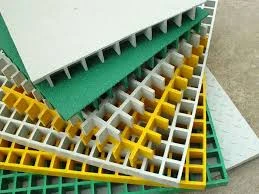
-
 Afrikaans
Afrikaans -
 Albanian
Albanian -
 Amharic
Amharic -
 Arabic
Arabic -
 Armenian
Armenian -
 Azerbaijani
Azerbaijani -
 Basque
Basque -
 Belarusian
Belarusian -
 Bengali
Bengali -
 Bosnian
Bosnian -
 Bulgarian
Bulgarian -
 Catalan
Catalan -
 Cebuano
Cebuano -
 China
China -
 China (Taiwan)
China (Taiwan) -
 Corsican
Corsican -
 Croatian
Croatian -
 Czech
Czech -
 Danish
Danish -
 Dutch
Dutch -
 English
English -
 Esperanto
Esperanto -
 Estonian
Estonian -
 Finnish
Finnish -
 French
French -
 Frisian
Frisian -
 Galician
Galician -
 Georgian
Georgian -
 German
German -
 Greek
Greek -
 Gujarati
Gujarati -
 Haitian Creole
Haitian Creole -
 hausa
hausa -
 hawaiian
hawaiian -
 Hebrew
Hebrew -
 Hindi
Hindi -
 Miao
Miao -
 Hungarian
Hungarian -
 Icelandic
Icelandic -
 igbo
igbo -
 Indonesian
Indonesian -
 irish
irish -
 Italian
Italian -
 Japanese
Japanese -
 Javanese
Javanese -
 Kannada
Kannada -
 kazakh
kazakh -
 Khmer
Khmer -
 Rwandese
Rwandese -
 Korean
Korean -
 Kurdish
Kurdish -
 Kyrgyz
Kyrgyz -
 Lao
Lao -
 Latin
Latin -
 Latvian
Latvian -
 Lithuanian
Lithuanian -
 Luxembourgish
Luxembourgish -
 Macedonian
Macedonian -
 Malgashi
Malgashi -
 Malay
Malay -
 Malayalam
Malayalam -
 Maltese
Maltese -
 Maori
Maori -
 Marathi
Marathi -
 Mongolian
Mongolian -
 Myanmar
Myanmar -
 Nepali
Nepali -
 Norwegian
Norwegian -
 Norwegian
Norwegian -
 Occitan
Occitan -
 Pashto
Pashto -
 Persian
Persian -
 Polish
Polish -
 Portuguese
Portuguese -
 Punjabi
Punjabi -
 Romanian
Romanian -
 Russian
Russian -
 Samoan
Samoan -
 Scottish Gaelic
Scottish Gaelic -
 Serbian
Serbian -
 Sesotho
Sesotho -
 Shona
Shona -
 Sindhi
Sindhi -
 Sinhala
Sinhala -
 Slovak
Slovak -
 Slovenian
Slovenian -
 Somali
Somali -
 Spanish
Spanish -
 Sundanese
Sundanese -
 Swahili
Swahili -
 Swedish
Swedish -
 Tagalog
Tagalog -
 Tajik
Tajik -
 Tamil
Tamil -
 Tatar
Tatar -
 Telugu
Telugu -
 Thai
Thai -
 Turkish
Turkish -
 Turkmen
Turkmen -
 Ukrainian
Ukrainian -
 Urdu
Urdu -
 Uighur
Uighur -
 Uzbek
Uzbek -
 Vietnamese
Vietnamese -
 Welsh
Welsh -
 Bantu
Bantu -
 Yiddish
Yiddish -
 Yoruba
Yoruba -
 Zulu
Zulu
Innovative Solutions for FRP Piping Systems in Industrial Applications
Understanding FRP Piping Systems Advantages and Applications
Fiberglass Reinforced Plastic (FRP) piping systems have gained significant traction in various industries due to their unique properties and benefits. These piping systems combine the lightweight characteristics of plastic with the strength of fiberglass, resulting in a material that is not only durable but also resistant to corrosion and other environmental factors.
Composition and Properties
FRP pipes are made from a composite material comprising a polymer matrix reinforced with fiberglass strands. This construction gives FRP pipes several advantageous traits. First and foremost, they are notably resistant to a wide range of chemicals, making them suitable for transporting aggressive media, such as acids and alkalis. Additionally, their resistance to corrosion means that they do not degrade over time, which is an advantage over traditional metal piping systems that can rust or corrode.
Another key characteristic of FRP piping systems is their lightweight nature. Compared to metal pipes, FRP pipes are significantly lighter, which simplifies transportation and installation processes. This characteristic not only reduces labor costs but also minimizes the structural support required for the piping system. Furthermore, FRP pipes can be manufactured in various sizes, allowing for flexibility in design and application.
Advantages of FRP Piping Systems
Understanding FRP Piping Systems Advantages and Applications
2. Cost-Effectiveness While the initial cost of FRP pipes can be higher than traditional materials, the long-term savings due to reduced maintenance and replacement costs often outweigh these initial expenses. The combination of durability and low maintenance makes FRP a cost-effective option over the lifecycle of the piping system.
frp piping system

3. Environmentally Friendly FRP piping is also an eco-friendly alternative. As they are resistant to corrosion, they minimize the risk of leaks and environmental contamination. Additionally, their lightweight nature contributes to lower energy consumption during transportation and installation.
4. Versatility FRP pipes can be utilized in a variety of applications, including oil and gas, chemical processing, water treatment, and HVAC systems. Their versatility allows industries to customize specifications to meet strict regulatory standards and operational requirements.
5. Thermal Insulation FRP piping systems often exhibit good thermal insulation properties, reducing heat loss and improving energy efficiency. This is particularly beneficial in applications where temperature control is crucial.
Applications
The applications of FRP piping systems are extensive. In the chemical industry, they are essential for transporting various chemicals safely and efficiently. Water treatment facilities benefit from FRP pipes due to their corrosion resistance when dealing with potentially hazardous waste materials. Furthermore, in marine environments, FRP’s resistance to seawater and the ability to withstand harsh conditions make it a preferred choice for shipbuilding and offshore structures.
Conclusion
FRP piping systems present a forward-thinking solution for industries demanding reliability, durability, and efficiency. Their resistance to corrosion, lightweight nature, and versatility make them an attractive option for a myriad of applications. As industry needs evolve and environmental concerns grow, the adoption of advanced materials like FRP will likely continue to rise, paving the way for more sustainable and efficient piping solutions in the future. Understanding the benefits and applications of FRP will be crucial for businesses aiming to optimize their operations while minimizing environmental impact.
Latest news
-
Exploring the Benefits of Top Hammer Drifter Rods for Enhanced Drilling PerformanceNewsJun.10,2025
-
High-Precision Fiberglass Winding Machine for GRP/FRP Pipe Production – Reliable & Efficient SolutionsNewsJun.10,2025
-
FRP Pipes & Fittings for Shipbuilding - Corrosion-Resistant & LightweightNewsJun.09,2025
-
Premium FRP Flooring Solutions Durable & Slip-ResistantNewsJun.09,2025
-
Premium Fiberglass Rectangular Tanks Durable & Lightweight SolutionNewsJun.09,2025
-
Tapered Drill String Design Guide Durable Performance & UsesNewsJun.09,2025









